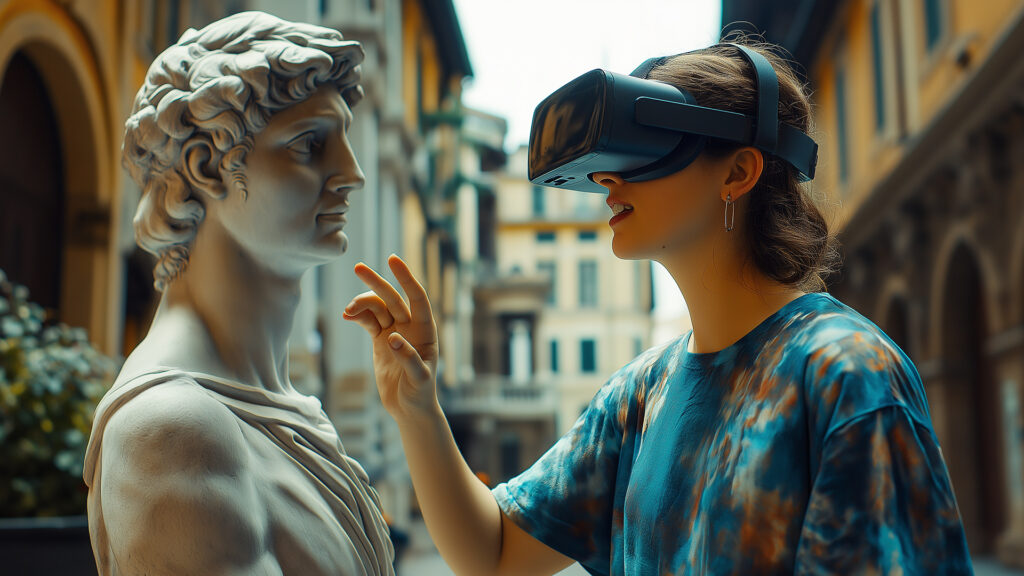Local art and history, often preserved in museums, churches, and historic residences, can be regenerated by Artificial Intelligence. Thanks to the “Regenerative Arts” techno-methodology, the style of artists of the past is reactivated to recreate unprecedented scenes. “Regenerative Arts” consists of a rigorous approach for “regenerative” (not simply “generative”) artificial intelligence. In essence that form…
Author Archives: user
Immersive exhibitions are one of the most recent and vibrant phenomena in the modern culture industry, and they are gaining popularity for their ability to effectively engage a wider audience than conventional exhibitions. The creation of video installations is certainly not new, as it can be traced back to the video art of the 1970s,…
The museum, thanks to the network and synthetic simulations, comes out of its enclosed space and pervades the territory, for example, by virtually relocating artifacts back to their original context, where, conversely, an immersive stargate opens, virtually bringing one back into the museum. Museums enter schools thanks to the digital realm, universities become internationalized by…
There are numerous examples of digitized museums, i.e., enriched by technological solutions, but entirely digital museums, i.e., without physical exhibits, are also becoming more common today. The all-digital museum omits the function of artifact preservation (which it lacks), while enhancing the communicative and cognitive function: it thus becomes akin to a technological palace dedicated to…
The extended museum is a “phygital” museum, i.e., physical and digital together, thus extending into the network and the synthetic world, and through these it opens up to society and the territory, using immersive technologies and artificial intelligence. The two worlds, physical and artificial, meet inside and outside the museum, before, during and after the…
Technologies have long been promoting and changing the experience of visiting museums, including by creating new digital attractions. If the Web and social media have already become the main channel of information access to cultural heritage, the advent of artificial intelligence, connoted as cognitive technology, could have even more profound repercussions. Text and image recognition,…
Like other industries, the cultural heritage sector is also affected by digital transformation. In national and international cultural institutions, efforts are being made to predict the impact of Artificial Intelligence on museums, libraries, historical archives, churches, monuments and archaeological sites. Some solutions for safeguarding and cataloging cultural heritage using AI have already been implemented and…
The different types of Homo Extensus will correspond to specific forms of intelligence, which will consolidate over the years by asserting themselves over other forms, as happens in biology in the evolution of species and as has happened for human thought in the history of cognitive technologies. We can imagine possible forms of human intelligence,…
In the desirable scenario in which artificial intelligences will increase human productivity, and of a redistribution of wealth, a society in which it will be possible to work less is conceivable. If this hypothesis is realized we will see a major growth in the leisure economy, and the tourism sector would be the first to…
Dialogue is a fundamental experience in the formulation and construction of the structure of human reasoning, from the earliest vocal exchanges between child and mother to the highest expressions of philosophical dialectics. Carried over time in writing, dialogue has taken on the conceptual forms of Platonic, Aristotelian or Hegelian dialectics, which although extremely differentiated from…


